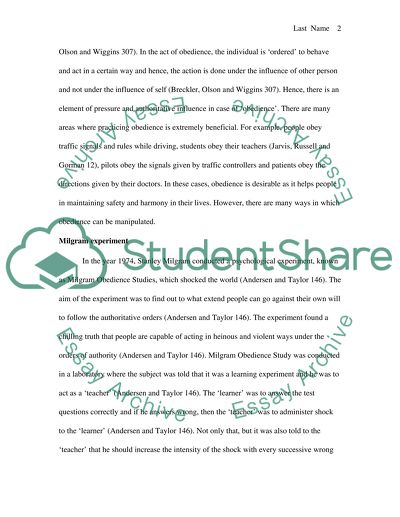Cite this document
(“Conscience: A Guide In 'Obedience' Essay Example | Topics and Well Written Essays - 1000 words”, n.d.)
Retrieved from https://studentshare.org/psychology/1428623-what-has-social-psychology-taught-us-about
Retrieved from https://studentshare.org/psychology/1428623-what-has-social-psychology-taught-us-about
(Conscience: A Guide In 'Obedience' Essay Example | Topics and Well Written Essays - 1000 Words)
https://studentshare.org/psychology/1428623-what-has-social-psychology-taught-us-about.
https://studentshare.org/psychology/1428623-what-has-social-psychology-taught-us-about.
“Conscience: A Guide In 'Obedience' Essay Example | Topics and Well Written Essays - 1000 Words”, n.d. https://studentshare.org/psychology/1428623-what-has-social-psychology-taught-us-about.


